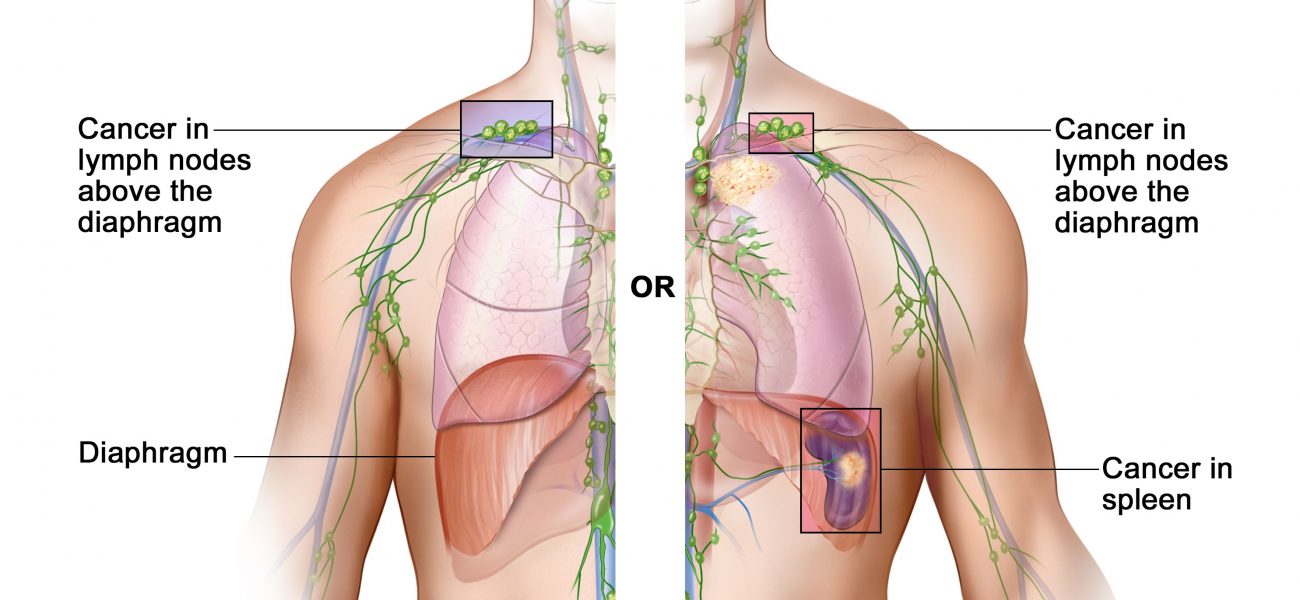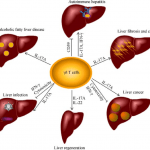Lymphoma is a cancer of the lymphatic system, which is part of the body’s germ-fighting network.
The lymphatic system includes the lymph nodes (lymph glands), spleen, thymus gland and bone marrow. Lymphoma can affect all those areas as well as other organs throughout the body.
Many types of lymphoma exist. The main subtypes are:
- Hodgkin’s lymphoma (formerly called Hodgkin’s disease)
- Non-Hodgkin’s lymphoma
What lymphoma treatment is best for you depends on your lymphoma type and its severity. Lymphoma treatment may involve chemotherapy, immunotherapy medications, radiation therapy, a bone marrow transplant or some combination of these.
Types
- Chronic lymphocytic leukemia
- Cutaneous B-cell lymphoma
- Cutaneous T-cell lymphoma
- Hodgkin’s lymphoma (Hodgkin’s disease)
- Non-Hodgkin’s lymphoma
- Waldenstrom macroglobulinemia
Symptoms
Signs and symptoms of lymphoma may include:
- Painless swelling of lymph nodes in your neck, armpits or groin
- Persistent fatigue
- Fever
- Night sweats
- Shortness of breath
- Unexplained weight loss
- Itchy skin
Causes
Doctors aren’t sure what causes lymphoma. But it begins when a disease-fighting white blood cell called a lymphocyte develops a genetic mutation. The mutation tells the cell to multiply rapidly, causing many diseased lymphocytes that continue multiplying.
The mutation also allows the cells to go on living when other normal cells would die. This causes too many diseased and ineffective lymphocytes in your lymph nodes and causes the lymph nodes, spleen and liver to swell.
Risk factors
Factors that can increase the risk of lymphoma include:
- Your age. Some types of lymphoma are more common in young adults, while others are most often diagnosed in people over 55.
- Being male. Males are slightly more likely to develop lymphoma than are females.
- Having an impaired immune system. Lymphoma is more common in people with immune system diseases or in people who take drugs that suppress their immune system.
- Developing certain infections. Some infections are associated with an increased risk of lymphoma, including the Epstein-Barr virus and Helicobacter pylori infection.
The list of some Lymphoma medicine:



